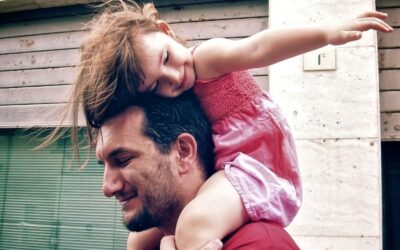Add educational experiences to every activity to help your children learn and grow
Children learn the most by experiencing and exploring the world around them, which means every outing also serves as an educational opportunity. Early childhood is a valuable time for learning since your child’s brain develops at an astounding pace for the first five years of life.
As a parent and the first and most impactful teacher in your child’s life, you can ensure outings are learning experiences by engaging with your child in mindful and meaningful ways.
Consider the following when you’re out and transform ordinary experiences into interactive educational opportunities.
Education through exploration
From a simple trip to the grocery store to an evening at the symphony, there is something to learn everywhere you go if you are willing to seek out new information and experiences.
The most valuable educational activities are often the ones that aren’t presented as such. Showing curiosity, enthusiasm, and interest in the world and the people in it is one of the best lessons that you can teach a child.
Don’t make every outing an obvious academic endeavor, but do spend that time talking to your child, explaining things they may not know, and encouraging them to try new things and ask questions.
Children love to play, which makes play one of the most effective learning tools in early childhood. Make outings fun by incorporating some of the following suggestions.
Add a sense of ownership
Young children love to experience independence and to feel as if their opinions and assistance are valued. Involve your child from beginning to the end of an event. You can ask them to choose between two outfits for the adventure or have them add items to the grocery cart. By keeping your child engaged and asking them to help, you can create a sense of working together while leaving less time for complaints or meltdowns.
I-Spy scavenger hunt
A fun way to keep your child focused and interested in activities that aren’t as child-friendly is to ask them to use their powers of observation in a scavenger hunt-like game. Give your child a short verbal list of things to find in the surrounding environment – for instance, something red, something soft, or something pointy. Include things they know or are learning, such as the alphabet or numbers, to make the game even more beneficial. Once they’ve completed their list, assign more items. This activity is great for waiting rooms, shopping trips, or public transportation.
Ask and answer
Add emphasis to educational outings, such as trips to the museum or zoo, by asking children questions about things they have seen or learned. Read the informational signs, listen to tour guides, or recall what you’ve seen and asked questions.
Interview interaction
Early childhood is a crucial time for social and emotional development. Encourage your child to come up with one question to ask at each outing. If you’re visiting the library, think of something to ask the librarian. Talking to others is good practice for a child, and most professional adults are happy to help. Don’t force your child if they are uncomfortable or shy, but try to highlight the value of asking experts for their knowledge or opinions.
Life is still so new to young children that they often see novelty or magic in the ordinary experiences that we take for granted. Adopt that perspective and help your child discover activities and information that can enrich regular outings while making your time together even more fun.
The Virginia Infant & Toddler Specialist Network helps improve the quality of care for infants and toddlers through extensive resources, services, and education for caregivers. Learn more about how we can help you improve the standard of care.




